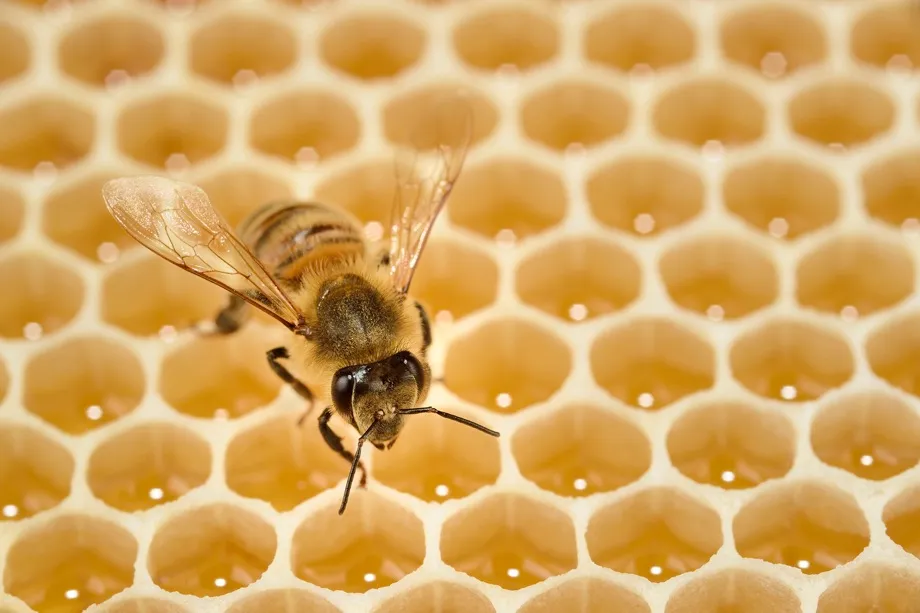Life is tough, especially when you don't have opposable thumbs. Chris Packham's new series Animal Einsteins for BBC Two reveals the science behind the savviest species on Earth, from the tiny cleaner wrasse fish that 'knows itself' to the well-documented brainpower of the raven.
"I think animals have to manifest their own intelligence," says Packham. "Ultimately, in order for them to survive – which so many of them do if we don’t interfere with them – they manifest a form of intelligence which is essential to them."
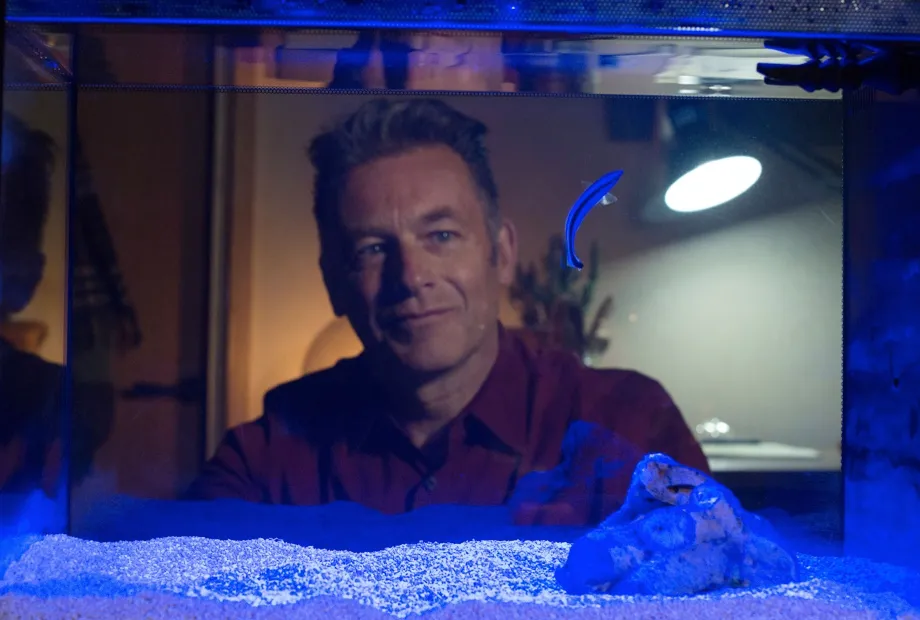
Joined by a group of animal experts, Packham discovers how these clever creatures have developed their skills and adapted to (or in spite of) their surroundings.
Each hour-long episode explores a different ability, including social networking, animals that build their own habitats and the cleverest communicators.
Rethinking animal intelligence
"I think there’s going to be a lot of surprises for people," says Packham. "There are quite a lot of wow moments."
"There are stories here which are going to stop people in their tracks and get them to completely rethink the way that they probably consider other animals’ intelligence."
The series covers some well-known animal Einsteins, as well as a few new stories from the latest scientific research.
"There are a few stories that we’ve touched on before and that we’ve updated, but nevertheless there’s a generous dose of up-to-date science. Given the advances in technology that we have, this has led our scientists to have a wide range of access to understand species' behaviour.
"[New technology] allows them to analyse the animals in a way that we haven’t been previously able to do. While we previously have had suspicions, we are now able to prove those using the contemporary technology."
Sneaky species
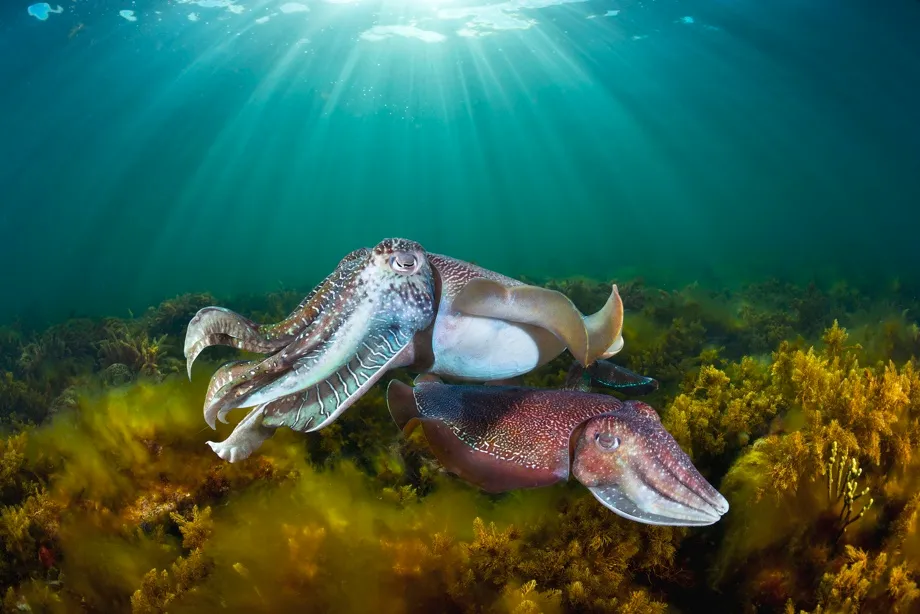
"What’s the most unusual skill or technique I saw the animals on this series displaying? I think I’d go for the mourning cuttlefish," says Packham.
"They make half of their body look like a female so they can sneak past another male and it is just unbelievably cheeky.
"I mean, we all like a con artist, I think we all like the idea of tricks. We are drawn to card tricks and magicians – and magicians have been going for thousands of years and we still watch them now.
"But when you look at that cuttlefish, looking half like a female so it can sneak in, and the male thinks 'oh this is a bonus I’ve got two females' – but the minute it's under there, the male side attracts the female and they get to mate, and it’s so sneaky and so brilliant that they have the capacity to change their colouration to mimic the opposite sex, for me that was just joyous, absolutely joyous."
Familiar faces
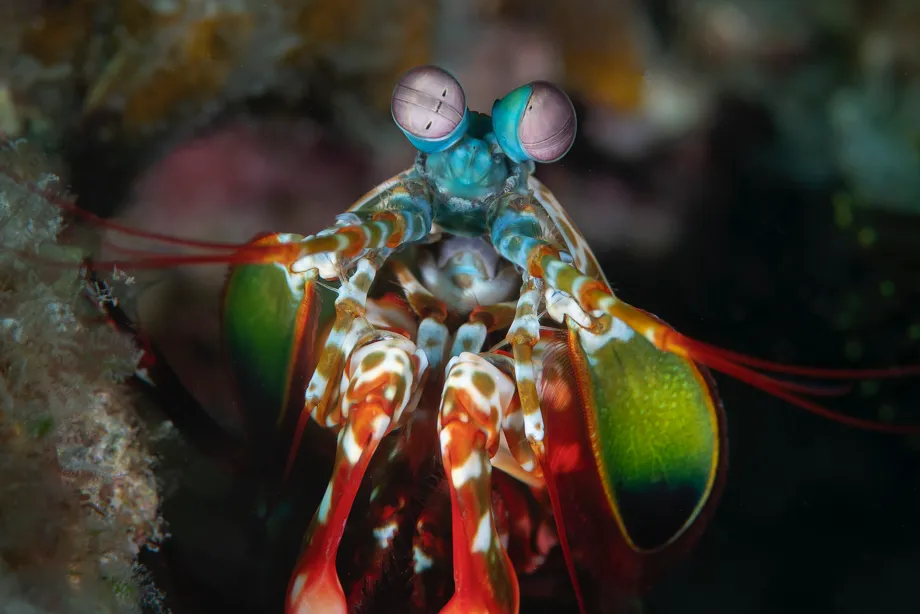
"Of course, not everyone’s met a mantis shrimp but most people do meet ants and domestic dogs and so on and so forth, and they play quite a significant role."
What's the most intelligent animal in the series? For Packham, it's the raven.
"The raven was presented with a challenge that it hadn’t seen before. The first time it did it, it took about a minute and 15 seconds and then the second time it did it - which I think was the take that we used in the series - it did it in about 45 seconds.
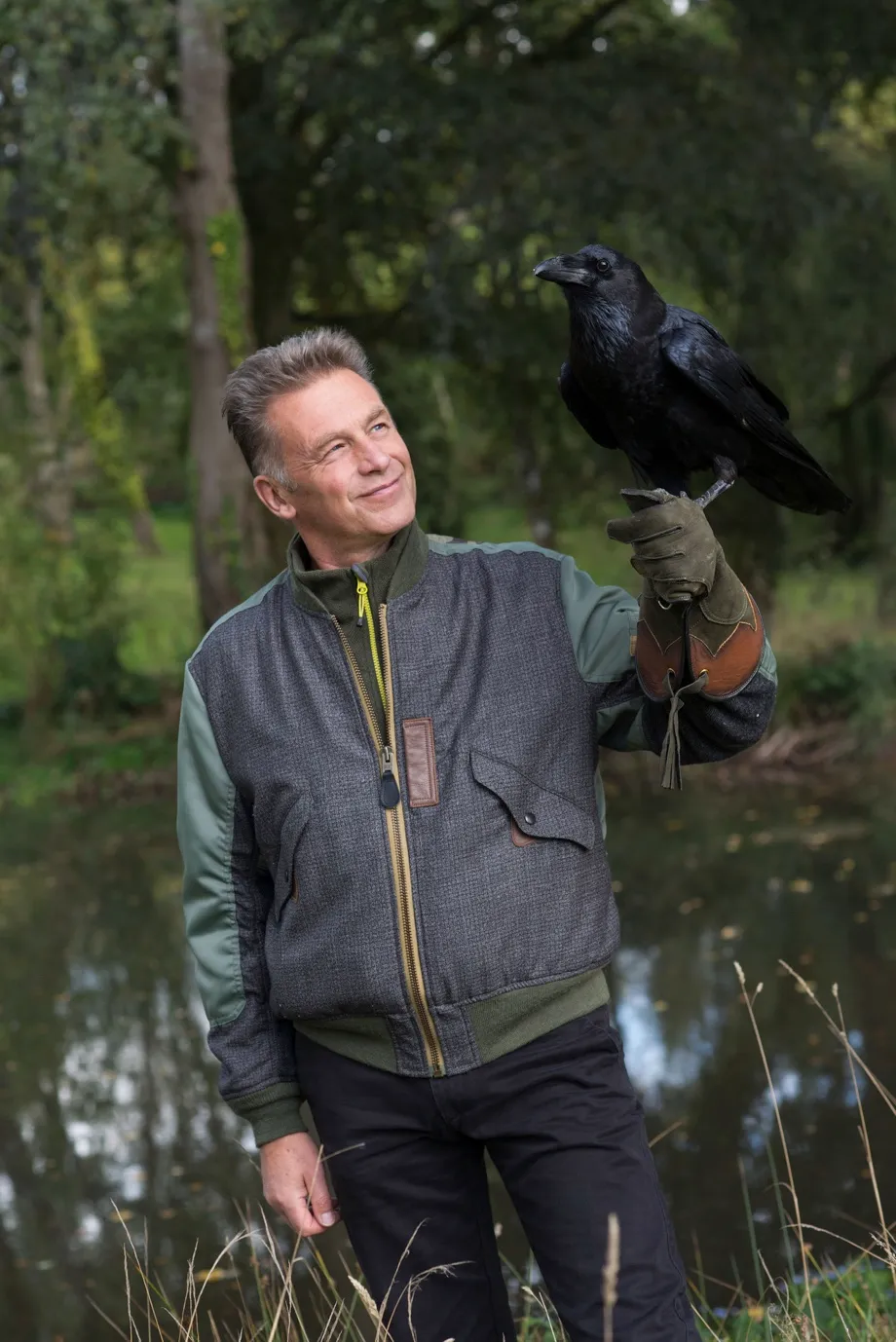
"But what we didn’t show in the episode was that once the raven had figured it out, it just kept doing it again and again and again, because it was getting the reward. And in the end it was doing it in about 15 seconds, after about four goes.
"So it's not only that it had the capacity to solve the problem initially, it also has the capacity to hone its problem-solving ability so it could do it more effectively, and to see that in real time, every time it did the test it sort of halved the amount of time that it took, was just amazing.
"I like ravens very much. Bran the raven, I’ve known that raven for quite a few years now, it belongs to a couple of friends of us all. So to see Bran in action, I mean it had already demolished the intelligence of my former poodles actually, on another series that we made, so we brought him back into play and once again he demonstrated these remarkable problem-solving abilities."
Beauty and brains
"Aesthetically we met some great things, the Poison Arrow Frog are exquisitely beautiful. There aren’t many animals as beautiful as a Poison Arrow Frog. They’re so delicate and yet the colours are so intense and they’re remarkable. So I liked looking at the Poison Arrow Frogs, that was great.
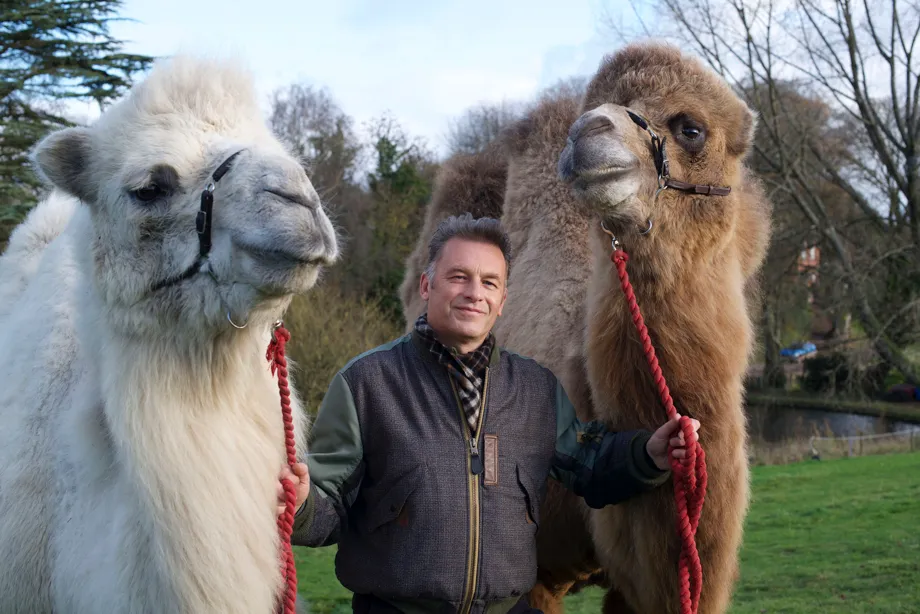
"The raven I’ve already mentioned was fantastic. I got to ride a couple of camels, bactrians, and I like camels. I like the smell of camels. We had very posh camels, they came bathed and washed, but they still smelt of camel. I quite like that, because it’s unique to that animal. It’s a distinct smell. So I always enjoy meeting those animals.
"But yeah, the Poison Arrow Frog was pretty spectacular I’ve got to say."
Tiny teachers
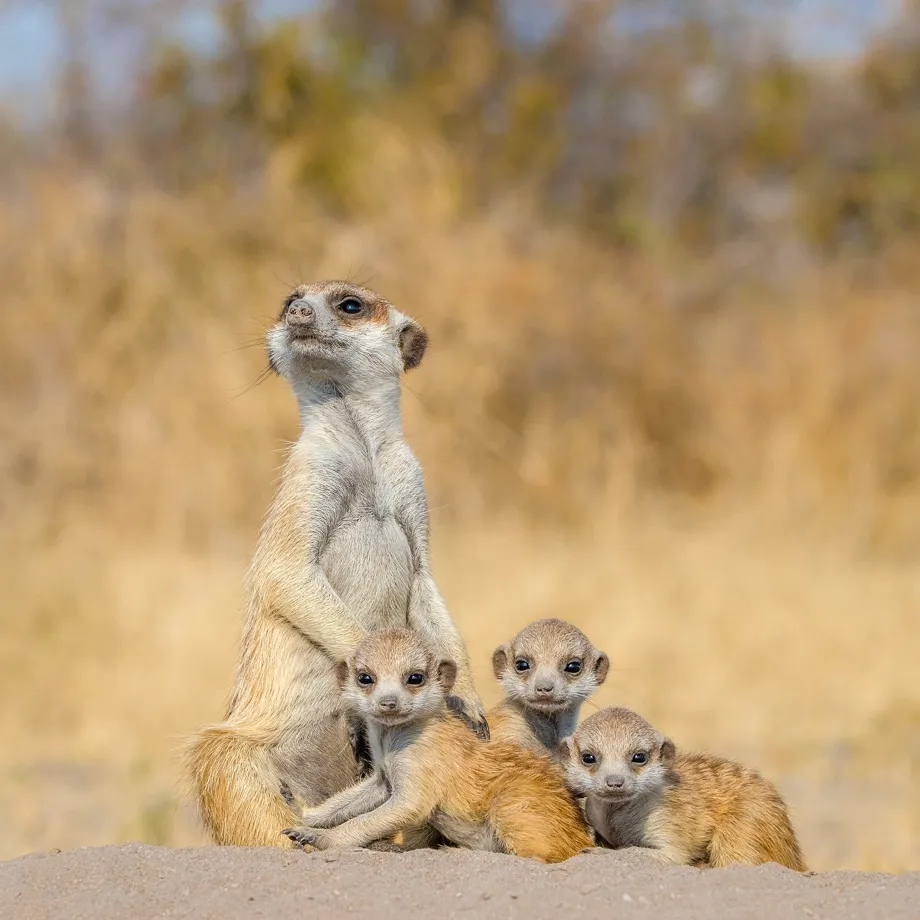
Meerkats share their knowledge with younger generations. Pups are taught how to catch scorpions from an early age – an essential survival skill.
Animal architects
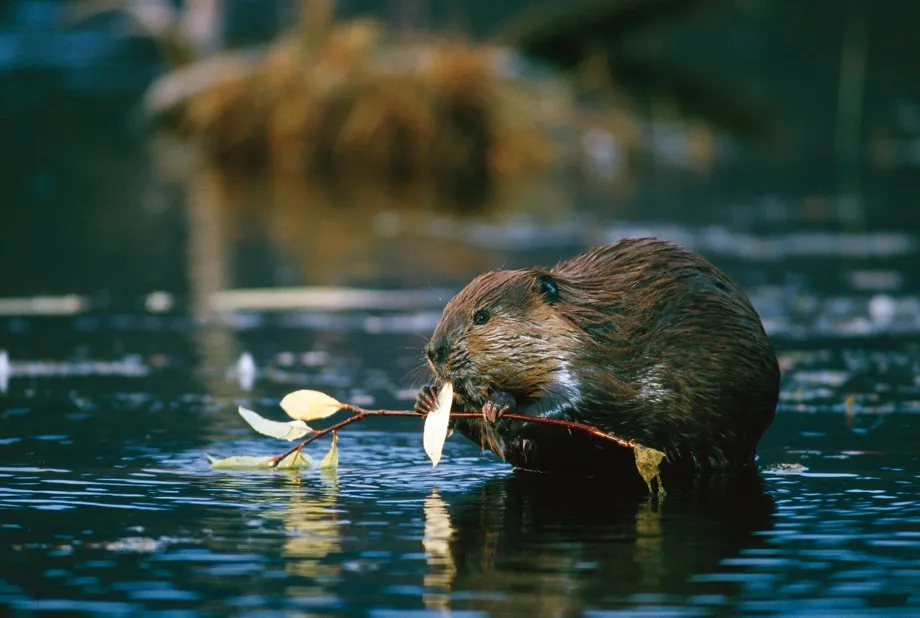
Many species are incredible builders, from beavers with their complex damns to honeybees' incredibly efficient hive designs.
